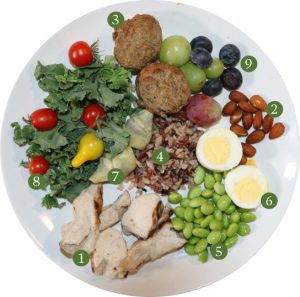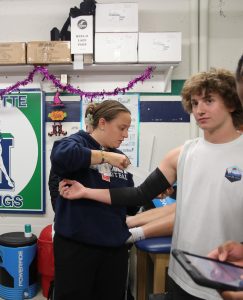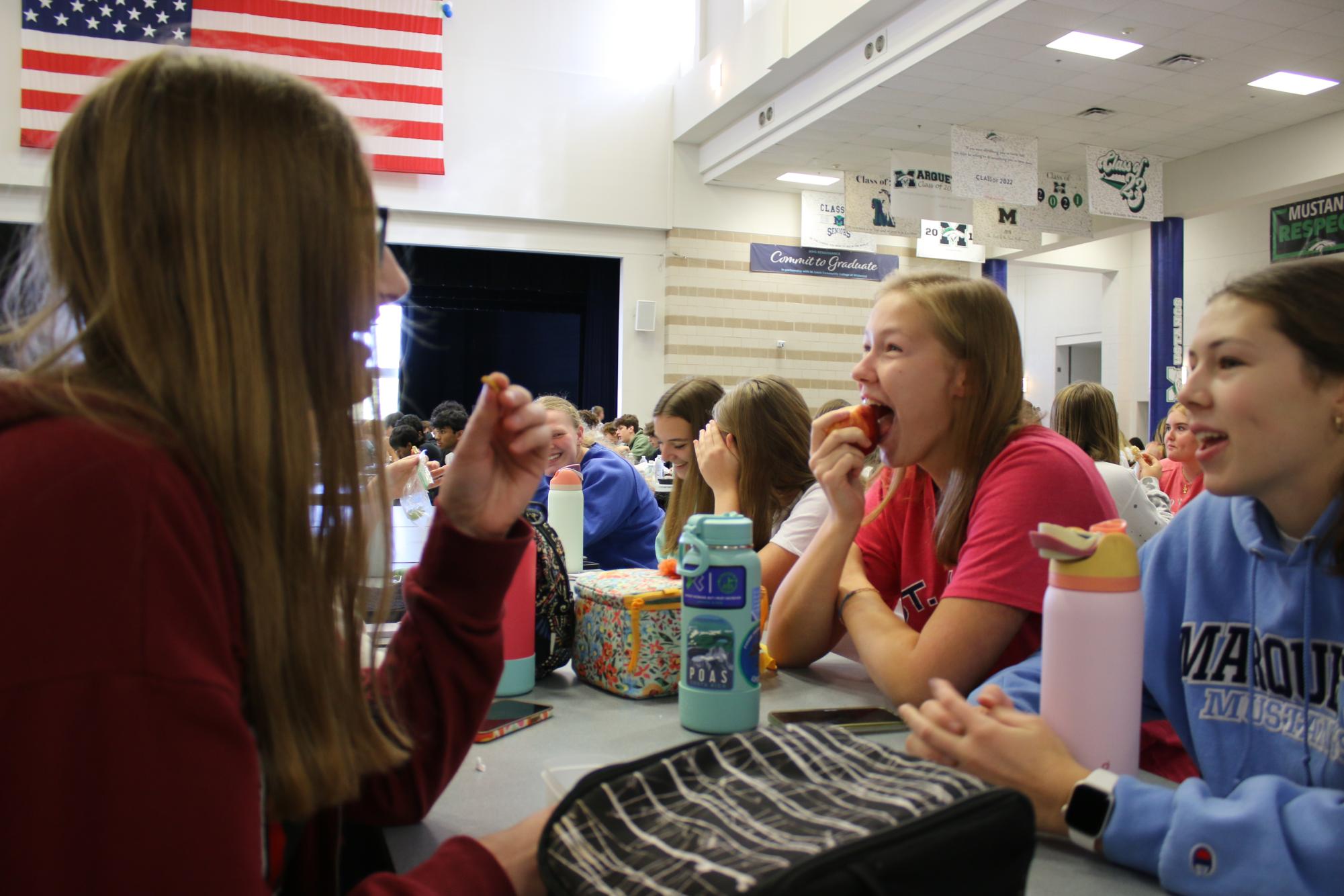Melissa Burger, head cross country and girls track coach, said young people should treat themselves like they would treat a Bugatti.
“Number one, you need to value your body,” Burger said. “Number two, you should be taking care of it, and number three, you should be fueling it.”

Burger said focusing on nutrition and making good food choices is important for athletes to have enough fuel to operate as effectively as possible.
“We don’t talk about dieting,” Burger said. “We talk about nutrition.”
Students should consider natural, healthy foods before changing their diet, Burger said, and a doctor, not Google, should be consulted before adding supplements.
On race days and hard run days, Burger said athletes should always be eating breakfast, staying hydrated and obtaining electrolytes. She strongly recommends athletes eat an energy bar or other form of protein within one hour of running for recovery and growth.
“If we aren’t eating enough, we’re in a deficit, and we’re destroying ourselves,” Burger said. “Nutrition and eating is the cornerstone for strength.”
Most importantly, Burger said students should listen to their bodies.
Coaches’ Perspective
Shawn McAteer, cross country and girls wrestling coach, said having enough protein is important for athletes in any sport.
“When we grew up, everybody pushed carbs as a high-energy food,” McAteer said. “We’ve forgotten how important proteins are to help build our muscles and to build back in terms of recovery.”
McAteer said athletes often forget to eat throughout the school day or simply don’t bring enough food.
“We get up early, we rush out the door, we maybe don’t have a good breakfast, we have lunch at 10:04, and then suddenly we’re at practice at 3:30 to 4, and we feel awful,” McAteer said.
Jacob Dieffenbach, boys wrestling coach, said it’s especially important for students in wrestling to be conscious of what they eat, more so than other sports. This is because many wrestlers try to cut to a lower weight class to have more success in tournaments.
“In football, you’re trying to get a lot of calories and force food down your body,” Dieffenbach said. “Whereas, in wrestling, you’re trying to do the exact opposite to lose weight and get in the weight class you want to be in.”
Dieffenbach recommends his athletes stay away from simple sugars, unhealthy fats and excessive sodium.
Dieffenbach said eating right is especially important before a tournament due to a fast turnaround time and the need to make a low weight class.
“They may have only eaten breakfast that day,” Dieffenbach said. “They’ve got to weigh in, eat right away and then perform.”
Dieffenbach tells his athletes to limit their carb intake in the days before a tournament. After they weigh in, however, athletes should eat simple carbohydrates for quick energy and avoid proteins, which can cause an upset stomach before a match.
For all students, eating right can be the difference between feeling lethargic or feeling healthy and active, Dieffenbach said.
Students’ Perspective
Gavin Lingafelter, senior, said what he eats makes a huge difference in his wrestling performance.
“It’s honestly a really big difference if you don’t eat, especially with weight cutting and trying to lose weight,” Lingafelter said. “If you don’t, you’re just gonna have no energy at all.”
During wrestling season, he sticks to little snacks every other hour to keep him going and saves a big meal for when he gets home at night.
On tournament days, Lingafelter limits his meals to low-calorie, high-protein snacks like peanut butter and jelly, grapes and protein bars.
“There’s no way you can have a good practice or a good tournament if you’re not fueled properly,” Lingafelter said. “So, it’s really just putting your calories strategically throughout the day so that you have enough to get you through the hard parts.”

Lexi Morgan, sophomore, loves Barebell protein bars and packs them in her lunch every day. She became interested in nutrition last year when she started to workout outside of softball practice.
“I wake up at 5:15 in the morning and leave around 5:25. Then, I workout for an hour and go to school,” Morgan said.
Last year she also started meal prepping and cooking for herself. She packs her lunch with healthy snacks that are high in protein.
Morgan chose a more low-calorie, high-protein lifestyle because it helps her to build muscle. She noticed a difference in her softball performance after she prioritized her nutrition.
“I feel more energized after a good meal,” Morgan said, “If you are eating enough protein, you will gain muscle, and if you gain muscle, your performance will be better.”
Morgan said nutrition is undervalued in the sports community.
Expert Advice
Jessi Austin, athletic trainer, said a lack of nutrients commonly causes dehydration and heat-related illnesses.
“Water is attracted to certain nutrients in the body,” Austin said. “If we’re not getting those nutrients, then the water doesn’t have anywhere to go, which makes it really hard for our body to be properly hydrated.”

If the body experiences a Vitamin D or calcium deficiency, it can lead to stress fractures, Austin said. These fractures are especially common among younger athletes.
Austin said the key is to maintain a balanced diet which includes grains, proteins and various fruits and vegetables to provide vitamins and minerals.
“We don’t function, in and out of athletics, properly without food in our system,” Austin said. “Eating regularly, even if it’s small meals, will help everybody function better throughout the day.”





